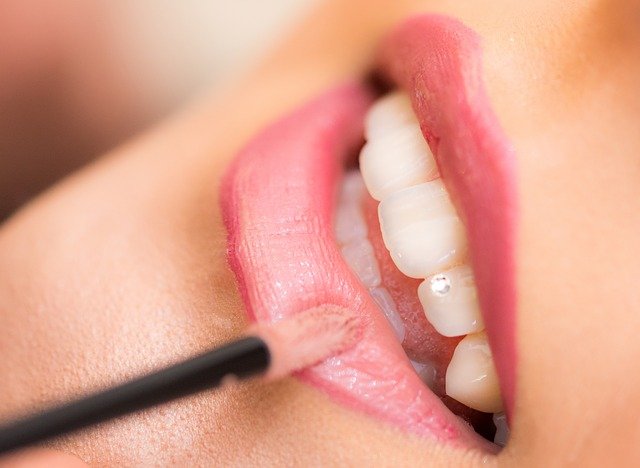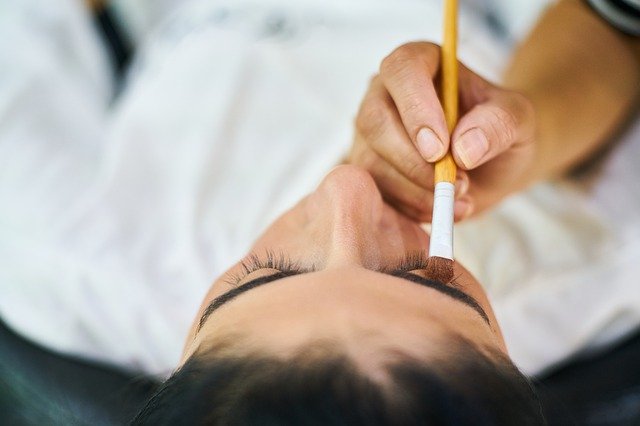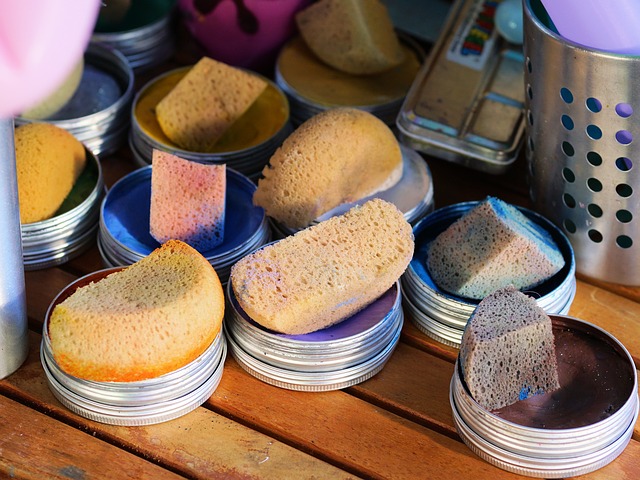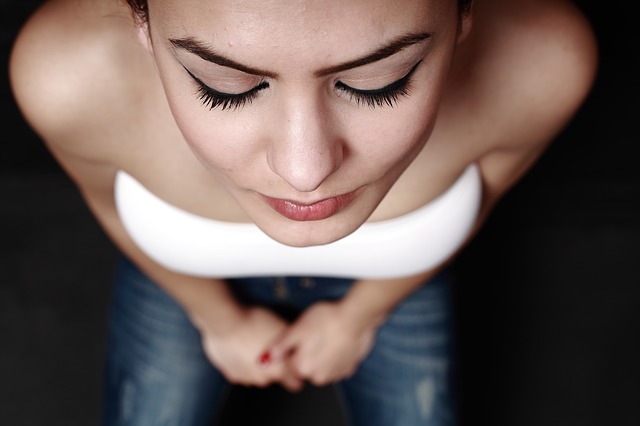You're probably no stranger to the frustrations of acne-prone skin, from stubborn pimples to lingering scars. To achieve a clearer complexion, you'll want to adopt a consistent skincare routine that addresses your skin's unique needs. Start by cleansing your face twice a day with a gentle, non-comedogenic cleanser – it's a simple yet vital step in maintaining a healthy balance. But cleansing is just the beginning. With nine more essential steps to explore, you'll discover how to harness the power of exfoliants, treatments, and protectants to transform your skin. What comes next is just as important.
Cleanse Face With Gentle Cleanser
Your skincare routine for acne-prone skin begins with washing your face using a gentle cleanser that effectively removes dirt and impurities without stripping your skin of its natural oils. You're aiming for a cleanser that's specifically labeled "non-comedogenic" or "oil-free" to reduce the risk of clogging your pores. When you wash your face, use lukewarm water and a gentle massaging motion with your fingertips to work the cleanser into a lather. Be sure to rinse your face thoroughly, making sure to remove all residue.
You should wash your face twice a day, morning and night, to keep your skin clean and balanced. In the morning, washing your face helps to remove overnight impurities and prepares your skin for the products you'll apply during the day. At night, washing your face helps to remove dirt, makeup, and impurities that have accumulated throughout the day. By using a gentle cleanser and following a consistent washing routine, you'll be taking the first step towards achieving healthier, clearer skin that's less prone to acne. This simple yet effective habit sets the stage for the rest of your skincare routine.
Exfoliate to Remove Dead Cells
After establishing a consistent cleansing routine, exfoliating becomes the next step in helping to remove dead skin cells and unclog pores, which can help to prevent acne and promote healthier skin. You should exfoliate one to three times a week, depending on your skin type and needs. If you have sensitive skin, start with once a week and gradually increase the frequency. Exfoliating helps break down the dead skin cells and other debris that clog pores, reducing inflammation and preventing acne.
Choose a gentle exfoliator containing alpha-hydroxy acids (AHAs) or beta-hydroxy acids (BHAs) for ideal results. Physical exfoliants like gentle scrubs or brushes also work well, but use them carefully to avoid damaging your skin. When you exfoliate, be sure to focus on all areas of your face, especially the T-zone. Avoid over-exfoliating, which can lead to irritation and dryness. If you experience any negative reactions, adjust your routine or consult with a skincare professional.
Use Toner to Balance Skin
Once or twice a day, use a toner to help balance your skin's pH, tighten pores, and remove any remaining impurities that your cleanser may have missed. This simple step can make a big difference in your skin's overall health and appearance. Toners are especially beneficial for acne-prone skin, as they can help to reduce inflammation and prevent future breakouts.
When choosing a toner, look for one that's labeled as 'non-comedogenic' or 'oil-free' to confirm it won't clog your pores. You can also opt for a toner containing salicylic acid or tea tree oil, which have antibacterial properties that can help to control acne. To use a toner, simply soak a cotton pad with the liquid and sweep it across your face and neck. Avoid the delicate skin around your eyes and mouth. By incorporating a toner into your skincare routine, you'll be taking a vital step towards achieving balanced, healthy-looking skin.
Apply Essence for Hydration
Now that you've balanced your skin with a toner, it's time to give it a boost of hydration with an essence, a concentrated serum that helps with skin texture and absorption. Essences are watery serums that contain active ingredients such as vitamins, amino acids, and antioxidants that deliver hydration and nourishment deep into your skin, leaving it feeling soft, smooth, and supple.
When choosing an essence, look for one that's formulated with hydrating ingredients like hyaluronic acid, ceramides, or niacinamide. Apply a few drops onto your face and gently pat it in with your fingertips, making sure to cover all areas evenly. Don't over-soak your skin, as this can clog pores and trigger more acne.
Within a few seconds, the essence will absorb into your skin, providing long-lasting hydration and improving skin elasticity. Using an essence daily can have a significant impact on your skin's texture and overall health, reducing the appearance of fine lines and wrinkles and making it look brighter and more radiant. Regular use can also help regulate oil production and tighten pores, which can reduce acne outbreaks.
Treat Acne With Spot Treatment
While your essence works its way into your skin, target any active breakouts or areas of congestion with a spot treatment containing salicylic acid or benzoyl peroxide, which help dry out pimples and reduce inflammation. You'll want to use a small amount of spot treatment, just enough to cover the affected area, to avoid over-drying your skin. Gently pat the treatment into your skin, making sure not to rub too hard, which can irritate your skin further.
Use Serum for Skin Repair
Apply a few drops of a gentle, oil-free serum to help repair and strengthen your skin, reducing the appearance of acne scars and hyperpigmentation. You'll want to look for a serum that's specifically formulated for acne-prone skin, containing ingredients like salicylic acid, glycolic acid, or niacinamide. These ingredients will help to unclog pores, reduce inflammation, and improve skin elasticity. When choosing a serum, make sure to read the label carefully and avoid products that contain comedogenic ingredients, which can clog pores and exacerbate acne.
Gently massage the serum into your skin, focusing on areas with acne scars or hyperpigmentation. Be patient and consistent, as serums can take some time to show results. You may start to notice improvements in your skin texture and tone within a few weeks of regular use. By incorporating a serum into your skincare routine, you'll be taking a proactive step towards healing and strengthening your skin, making it more resilient to future breakouts. This will also help to improve the overall appearance of your skin, giving you a smoother, brighter complexion.
Lock in Moisture With Moisturizer
Sealing in the benefits of your serum, moisturizer plays a crucial role in hydrating and protecting your acne-prone skin, helping to lock in moisture and support the skin's natural barrier function. When choosing a moisturizer, you'll want to look for a non-comedogenic and oil-free formula that won't clog pores. Don't be afraid to opt for a moisturizer labeled 'non-acnegenic' or 'acne-friendly,' as these are specifically designed for acne-prone skin.
As you apply your moisturizer, make sure to gently massage it into your skin, taking care not to scrub or rub too hard. Focus on areas that tend to get dry, such as the cheeks and forehead. Use enough to thoroughly hydrate your skin, but avoid over-applying – too much moisturizer can lead to clogged pores. A lightweight, water-based moisturizer is usually a good choice, as it provides essential hydration without overwhelming your skin. By locking in moisture, you'll help to keep your skin balanced, reduce irritation, and create a smooth canvas for your daily activities. With consistent application, your skin will thank you.
Protect Skin From Sun Damage
Your skincare routine isn't complete without shielding your acne-prone skin from the sun's damaging rays, a crucial step that prevents premature aging, dark spots, and further inflammation. You'll want to apply a broad-spectrum sunscreen with an SPF of at least 30 every morning, even on cloudy days. Look for a lightweight, oil-free formula that won't clog your pores or exacerbate acne.
When choosing a sunscreen, opt for a physical sunscreen containing zinc oxide or titanium dioxide, which provide a physical barrier against the sun's rays. Avoid chemical sunscreens that can irritate your skin and cause breakouts. Apply sunscreen liberally to all exposed skin, including your face, neck, and ears, 15-30 minutes before going outside. Don't forget to reapply every two hours or immediately after swimming or sweating. By protecting your skin from the sun, you'll not only prevent premature aging but also reduce the risk of skin cancer. Make sun protection a non-negotiable part of your daily skincare routine.
Remove Makeup Thoroughly Daily
Removing makeup thoroughly is a crucial step in maintaining healthy, acne-prone skin, as leftover makeup can clog pores and trigger breakouts. You should remove your makeup as soon as possible after a long day, using a gentle makeup remover that suits your skin type. Don't scrub your skin harshly, as this can strip it of its natural oils and cause irritation.
Choose a makeup remover that's specifically designed for acne-prone skin, as it will be less likely to clog pores. Look for a remover that contains salicylic acid or glycolic acid, which will help exfoliate your skin and prevent breakouts. You can use a micellar water, a cleansing oil, or a makeup wipes – just make sure you rinse your face thoroughly after removing your makeup. Don't forget to remove eye makeup, as this can also cause irritation and puffiness. By removing your makeup thoroughly every day, you'll be helping to prevent clogged pores and breakouts, and keeping your skin looking its best. Make this a habit, and you'll start to see improvements in your skin over time. Stick to it, and you'll be on your way to achieving healthier, clearer skin.
Stay Hydrated From the Inside
Now that you're taking steps to keep your skin clean on the outside by removing makeup thoroughly, it's equally important to focus on nourishing it from the inside by drinking plenty of water. Staying hydrated helps flush out toxins and waste products from your body, which can contribute to acne. When you're dehydrated, your skin can become tight, dry, and inflamed, making it more prone to breakouts. Drinking enough water also keeps your skin's natural oil production in check, preventing clogged pores and comedones.
Aim to drink at least eight 8-ounce glasses of water a day, or more if you're active or live in a humid climate. You can also consume hydrating foods, such as watermelon, cucumber, and celery. Herbal teas, like chamomile and peppermint, can also contribute to your daily hydration needs. Monitor your urine output – if it's pale yellow or clear, you're likely drinking enough water. By staying hydrated from the inside, you'll complement your skincare routine and create a healthier environment for your skin to thrive.
At a Glance
You've learned the 10 essential skincare steps for acne-prone skin. Now, it's time to put them into action. Remember to stay consistent with your routine and be patient with your skin. Don't be too hard on yourself if you encounter setbacks – everyone's skin is different. With these steps, you'll be on your way to a clearer, more radiant complexion. Keep your skin hydrated and protected, and it'll thank you in the long run. In addition to following these essential skincare steps, don’t forget to also pay attention to other areas of concern such as dark under-eye circles. There are plenty of dark circle remedies and treatments that can help brighten and rejuvenate this delicate area. By incorporating these remedies into your skincare routine, you’ll be able to tackle multiple skin issues and achieve an overall healthier and more glowing complexion. Remember, taking care of your skin is a journey, so be sure to give yourself the time and care it deserves.






